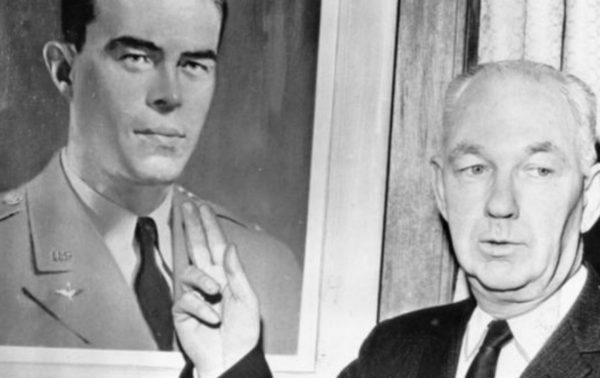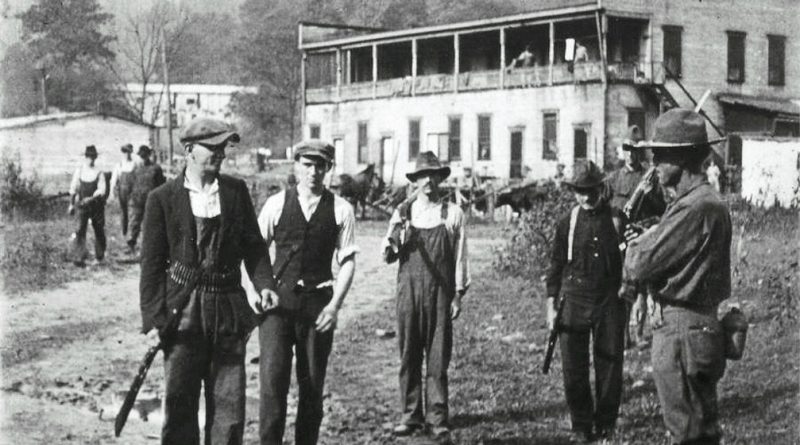August 25 in U.S. military history
1921: (Featured image) The United States and Germany finally sign a peace treaty, nearly four years after the World War ends. Meanwhile, coalmine workers attempting to unionize in West Virginia begin fighting with law enforcement and strike breakers in what becomes the largest insurrection since the Civil War. Over 1 million rounds are fired during the “Battle of Blair Mountain” before President Warren Harding orders the Army to intervene.
1941: Richard “Dick” Winters – the famous commander of the 101st Airborne Division’s “Easy” Company – enlists in the Army, entering basic training at Camp Croft in South Carolina. Winters will soon be selected for Officer Candidate School, and go on to join Col. Robert Sink’s 506th Parachute Infantry Regiment in 1942. Winters and his men jump into Sainte-Mère-Église on D-Day and that day will lead a daring attack on German 88mm guns firing on Utah Beach. For his actions in the Brécourt Manor Assault, Gen. Omar Bradley awards Winters with the Distinguished Service Cross – the Army’s second-highest award for valor.
1942: The Japanese supply fleet carrying reinforcements and supplies for the garrison on Guadalcanal is turned back after taking heavy damage from American air- and land-based aircraft. Several warships are lost, along with hundreds of sailors, soldiers, and many irreplaceable pilots.
1944: The 2d Armored Division and 4th Infantry Division enter Paris, capturing the French capital from German troops. Garrison commander General Dietrich von Choltitz surrenders his remaining forces that afternoon, ending four years of Nazi occupation.
1945: While leading an intelligence operation for the Office of Strategic Services (OSS), Capt. John M. Birch (USAAF) is killed by Chinese communist soldiers — just 10 days after the end of World War II. Birch’s death is considered the first American casualty of the Cold War. During World War II, Birch assisted Brig. Gen. Jimmy Doolittle and his Raiders as they traveled across China, and Doolittle recommended that Col. Claire Chennault should commission the American Baptist missionary as an officer for the “Flying Tigers.” Hoping to become a chaplain, Birch instead wound up as an intelligence officer for the OSS. The activist group John Birch Society was named in his honor.

1950: As railroad workers prepare to strike during the Korean War, President Harry Truman issues an executive order stating that rail transport is “essential to the national defense and security of the Nation” and places the U.S. Army in charge of the critical infrastructure.
1967: The controversial Defense Secretary Robert McNamara states that the Operation ROLLING THUNDER bombing campaign has had little effect on North Vietnam’s war-making capabilities. Although the military has dropped more bombs so far in the Vietnam War than it had during all of World War II, Pres. Lyndon Johnson’s policy of dictating targets from Washington hamstrings his commanders, who would otherwise have been able to carry out the campaign by choosing targets that would permit them to accomplish their political objectives
